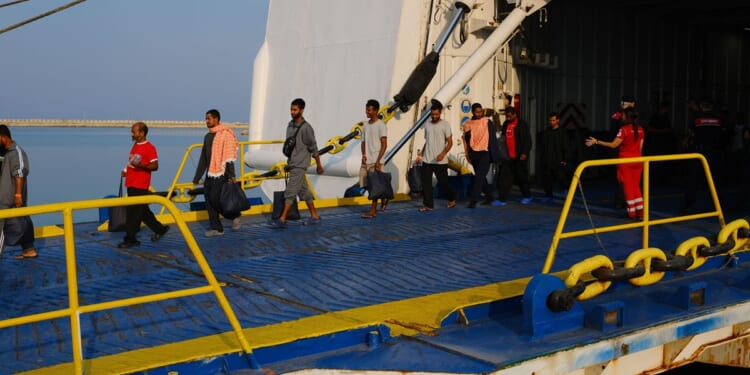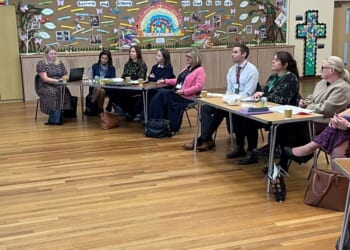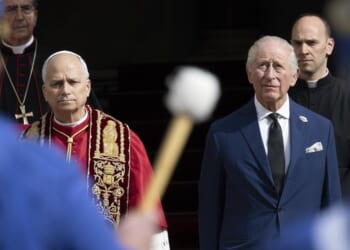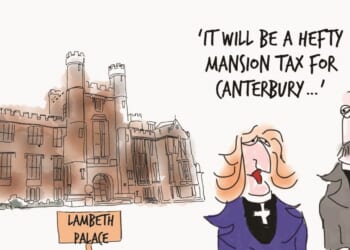THE Convocation of Episcopal Churches in Europe is responding to cuts in foreign and overseas aid from the United States and other countries by offering training, support, and funding for congregations working to support refugees.
A leadership conference on the refugee crisis, and the response of parishes and individual Christians to it, was held last week. Volunteers involved in running projects and those looking to set up new initiatives were invited to find out more about the part that churches could play in supporting refugees.
More than 13 million people are believed to be refugees in Europe, according to figures published by the UNHCR at the end of 2023. The number rose sharply in 2023 owing to the war in Ukraine.
The Convocation, a jurisdiction of the Episcopal Church in the US, has parishes and missions in Austria, Belgium, France, Germany, Italy, the Netherlands, and Switzerland. It set up a grant fund to encourage churches to support refugees as a result of the war in Ukraine, using funds donated by the Episcopal Church.
More than 160,000 refugees have so far been supported through churches that have received grants to run projects.
The fund’s website acknowledges that in many parts of Europe, state governments already provide refugee support, but “there is always something the church is uniquely able to contribute as a companion to, and community for, refugees in our midst,” it says.
“The compassion to which we are called as followers of Christ can take many forms — whether it is providing resources for community-building and mutual assistance, offering educational resources such as language teaching or familiarization programs, or simply providing pastoral care to those who have been traumatized, who have lost homes and families, and who often are vulnerable to exploitation and trafficking.”
To be eligible, projects have to be administered through congregations on the Continent. Leadership training for people running projects or interested in setting up new ones was held in Emmanuel Episcopal Church, Geneva. Supported by Episcopalian grants, this runs its own welcome centre, which last year helped 1000 refugees, most of them Ukrainian.
Its Rector, the Revd Michael Rusk, told conference participants that the centre sought to work with partners so as not to duplicate efforts. The result was a church that had created “a community which has many people of different nationalities, and which includes refugees and migrants who received a warm welcome”, he told the Episcopal News Service.
The Convocation’s chief welcoming officer for refugees and migrants, Giulia Bonoldi, is the the managing director of the Joel Nafuma Refugee Center, in Rome. She said that churches had to work alongside community services and learn what they could add which was of particular value. “This is a time in which the Church has an important opportunity to change the way it perceives itself, to do good work and encourage more awareness [of the crisis],” Ms Bonoldi told the conference.
Also present was the director of Episcopal Migration Ministries (EMM) in the US, Sarah Shipman. EMM has supported and helped to resettle more than 110,000 people from 87 countries with funding from the US federal government. But, in its first few days of office, the Trump administration suspended the refugee-resettlement programme, and EMM was forced to wind up its resettlement operations.
Ms Shipman said that work to support refugees continued through collaboration with dioceses and other Anglican Provinces.
“Whether you’re a Christian or Jewish or Muslim, or you have no faith at all, we all feel and experience empathy, and we all have a responsibility in our community to look out for and protect one another,” she said.
Dr Max Niedzwiecki, who helped EMM set up its Rainbow Initiative Programme to serve LGBTQ refugees, said that their presence was “a blessing” to communities.
“In addition, we might focus only on migrants’ struggles, while we know that they are full human beings with energy, skills, and love to share. Their presence is a blessing, and they deserve gratitude, as well as empathy. When we neglect to voice our gratitude, admiration, and solidarity with migrants in our words and in our prayers, we run the risk of reinforcing harmful stereotypes in our own hearts, and in the minds of people who are listening.”

















